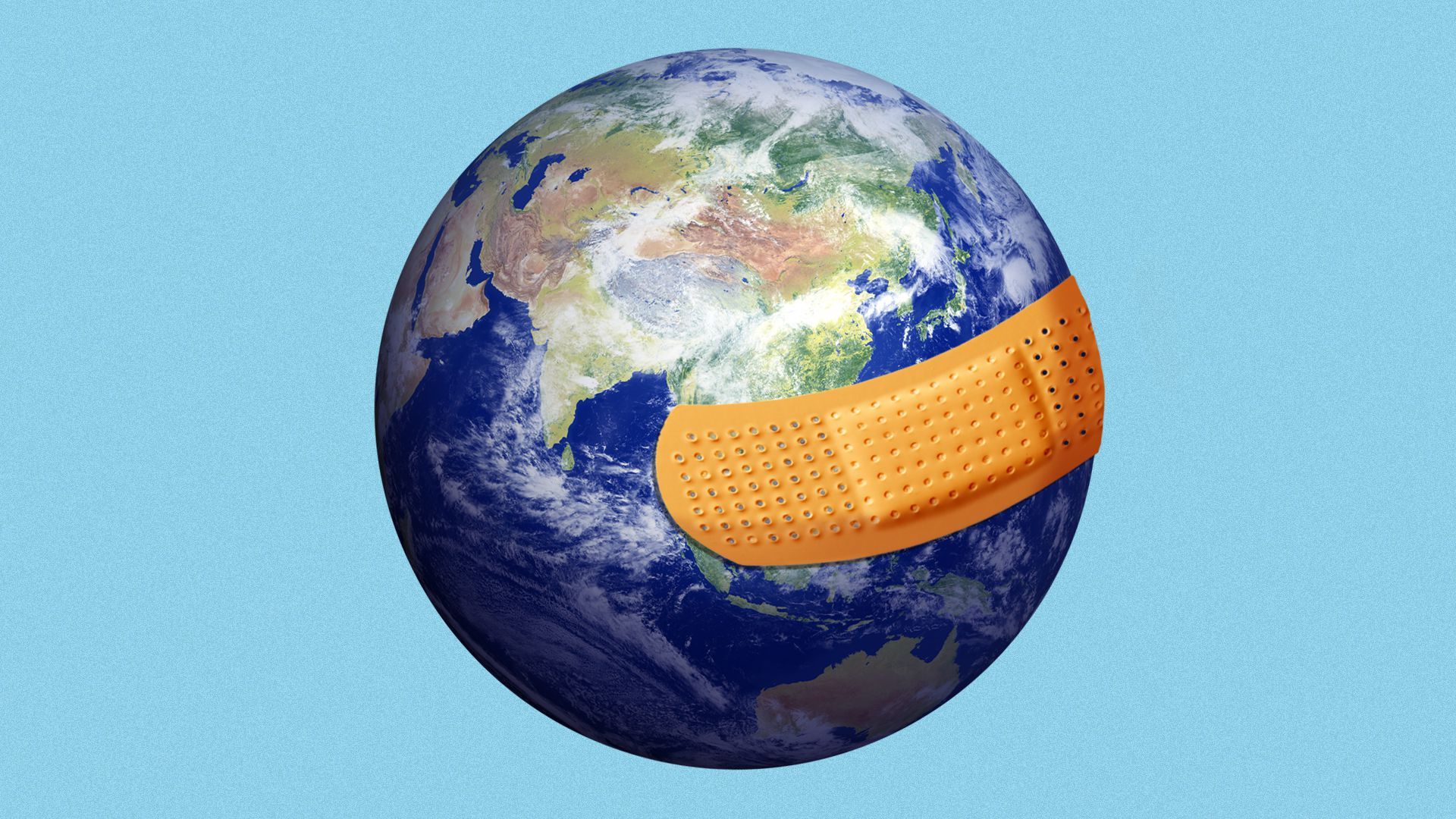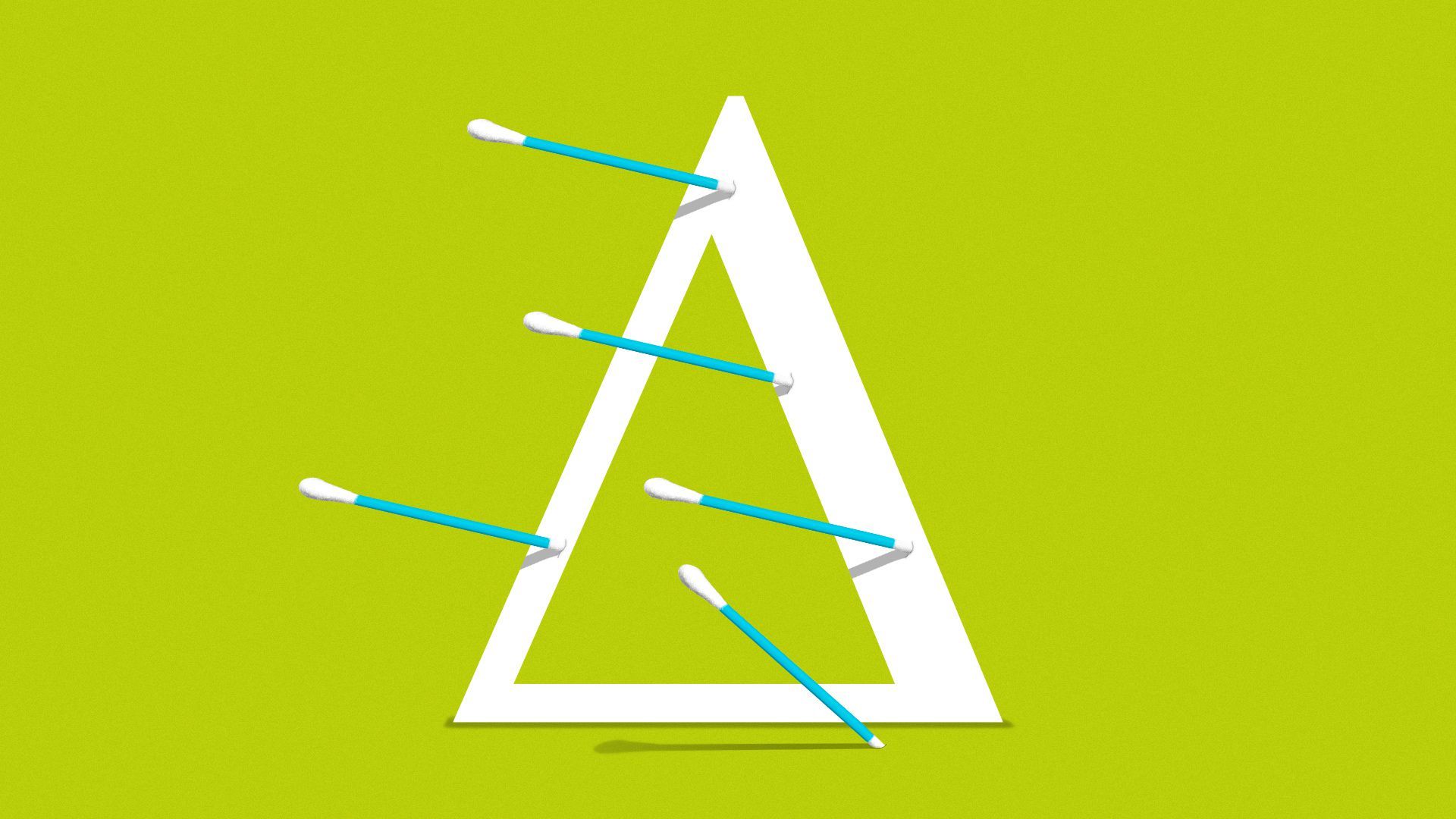| |
| |
| |
| Presented By UnitedHealth Group |
| |
| Axios Vitals |
| By Tina Reed ·Sep 13, 2021 |
| 😙 Welcome back from the weekend, Vitals readers. Today's newsletter is 984 words or a 4-minute read. This week: An FDA advisory committee will meet Friday to discuss whether to approve Pfizer-BioNTech's COVID vaccine to be used for boosters for those 16 and up. |
| |
| |
| 1 big thing: The U.S. isn't vaccinating most of the world |
 |
|
| Illustration: Sarah Grillo/Axios |
| |
| The global COVID-19 vaccination campaign has been underway nine months and most of the world's population has yet to receive at least one dose, Axios' Bob Herman writes. The big picture: Raw material shortages, complex and costly manufacturing, and vaccine makers' choices have made it clear the U.S. and its drug companies likely won't get the poor, unvaccinated parts of the world out of the pandemic — but China might. The state of play: Wealthier nations have more vaccines than citizens who want them, while poorer countries are facing bleaker timelines for when they can administer first doses. - The U.S. and other Western countries could vaccinate teenagers and provide booster shots to everyone, and still have 1.2 billion excess doses available to send elsewhere this year, according to a report from analytics firm Airfinity.
- Moderna and Pfizer/BioNTech have chosen to sell mostly to high-income countries where they make the most money.
- Meanwhile, the global COVAX consortium now anticipates receiving 25% fewer doses than expected due to production problems with the vaccines made by Johnson & Johnson, AstraZeneca and Novavax, as well as export restrictions from a major supplier in India.
- Moderna directed Axios to its COVAX press release. Pfizer said in a statement its goal "has been to provide fair and equitable access of the Pfizer-BioNTech COVID-19 vaccine to everyone, everywhere."
What to watch: China has ramped up exports of its Sinopharm, Sinovac and CanSino vaccines, which can be stored at normal refrigerator temperatures, leading some to believe China will be the global savior. - Experts are also banking on two researcher-led vaccine candidates — Corbevax and NDV-HXP-S — that are much cheaper and more easily mass-produced than the mRNA vaccines.
The bottom line: "If we're going to get out of the pandemic, we need all [vaccine] options," said Susan Carpenter, an immunology expert at the University of California Santa Cruz. Go deeper. |
    |
| |
| |
| 2. Democrats' competing health care priorities |
 |
|
| Illustration: Sarah Grillo/Axios |
| |
| The Democrats' reconciliation bill is built from many competing priorities — including several major health care priorities — setting up a precarious game of policy Jenga if the massive measure needs to be scaled back, Axios Caitlin Owens writes. Why it matters: It's worth gaming out where cuts will likely be made — and which could take the whole thing down. For instance, the enhanced ACA subsidies are scheduled to expire right before next years' midterm elections. The Democrats' hold on the House is incredibly shaky already, making extending them a political no-brainer. - And giving Medicare the power to negotiate drug prices polls very highly and produces enough government savings to help pay for these other health care policies. But it has the most powerful opponents, theoretically making it vulnerable to the chopping block.
The bottom line: "From a political perspective, none of these health care proposals seem very expendable," said KFF's Larry Levitt. - But there are also powerful constituencies for the other components of the bill that address issues like child care and climate change.
Share this story. |
    |
| |
| |
| 3. Parents search for COVID vaccine trials |
| Some parents around the U.S. are on the hunt for COVID-19 vaccine trials instead of waiting for FDA approval to get their young children inoculated, the New York Times reports. Why it matters: As kids return for in-person schooling before those under 12 became eligible for shots, it's created anxiety for parents who worry about the small — but very real — possibility that their kid could become severely ill, experience long-term consequences from or die from COVID. "This is probably the most dangerous time in the pandemic for children," Leana Wen, an emergency physician and public health professor at George Washington University, told Axios. - The Delta variant is highly transmissible and individuals are letting their guard down.
- "We're at a very high level of infection overall and the larger proportion of the susceptible population now is children," Wen said.
Driving the news: Kids made up more than a quarter (26.9%) of new weekly COVID-19 cases nationwide, according to the latest data available from the American Academy of Pediatrics. - Some parents are pushing their pediatricians to OK off-label adult shots for their kids, and demand driven by parental concern has made slots in children's vaccine trials scarce, per NYT.
Between the lines: The FDA said on Friday that it is "working around the clock" to support the process of making the coronavirus vaccine available for children under the age of 12. |
    |
| |
| |
| A message from UnitedHealth Group |
| Advancing health equity by addressing social determinants of health |
| |
 |
| |
UnitedHealth Group is committed to addressing social barriers that influence disparities in health care access, outcomes and affordability. We have helped: - Create 12,000 homes by investing $550 million in affordable housing.
- Provide over 100 million meals during the pandemic.
Learn more. |
| |
| |
| 4. U.S. starts to get serious on rapid COVID tests |
 |
|
| Illustration: Aïda Amer/Axios |
| |
| As part of his new COVID-19 plan, President Biden is backing a push to expand testing — including at-home rapid tests, Axios' Bryan Walsh reported over the weekend. The big picture: DIY tests offer the potential to regularly surveil people for COVID-19, getting them out of circulation before they can infect others. Why it matters: Rapid at-home tests are valuable less as diagnostic tools than as a regular public health intervention, which means they need to be cheap enough and accessible enough to be taken multiple times per week. - That's been the case in Germany, where free tests have been supplied to everyone since the winter, negative tests are required for nearly every kind of public activity — and the country's per-capita COVID case count is less than a tenth of that of the U.S.
- But supply chain problems in the U.S. — compounded by the FDA's determination to compare rapid antigen tests to gold-standard PCR diagnostics, which slows development — have kept at-home tests too rare and expensive to make a major dent in the pandemic.
The bottom line: Biden's plan is a start, but it's a start that may have come too late. Read more. |
    |
| |
| |
| 5. While you were weekending |
 |
|
| Illustration: Aïda Amer/Axios |
| |
- U.S. life spans, which have fallen behind those in Europe, are telling us something important about American society. (The Atlantic)
- Autoimmune diseases may be rising for 9/11 survivors. But the government hasn't acknowledged a link. (NBC News)
- Israel is preparing for a possible fourth COVID-19 vaccine dose. (Bloomberg)
- A New York hospital will "pause" delivering babies after maternity staffer resignations over COVID vaccine mandate. (Axios)
|
    |
| |
| |
| A message from UnitedHealth Group |
| Expanding access to care in underserved communities |
| |
 |
| |
| UnitedHealth Group is helping to address social determinants of health for uninsured individuals and underserved communities. See how we're advancing health equity through community partnerships that have helped more than 6 million people access care, nutritious food and stable housing. |
| |
 | | It'll help you deliver employee communications more effectively. | | |









No comments:
Post a Comment